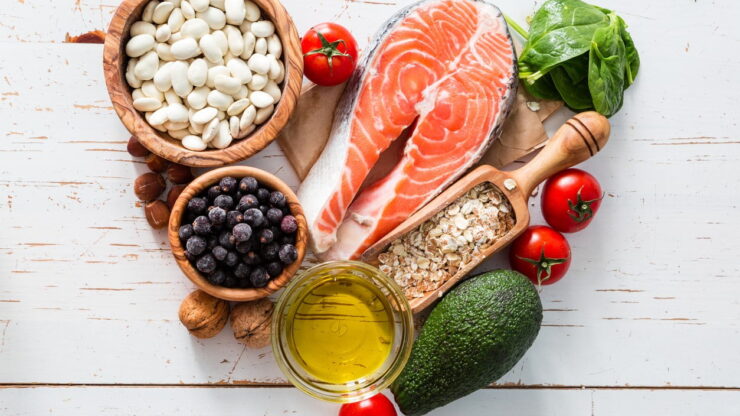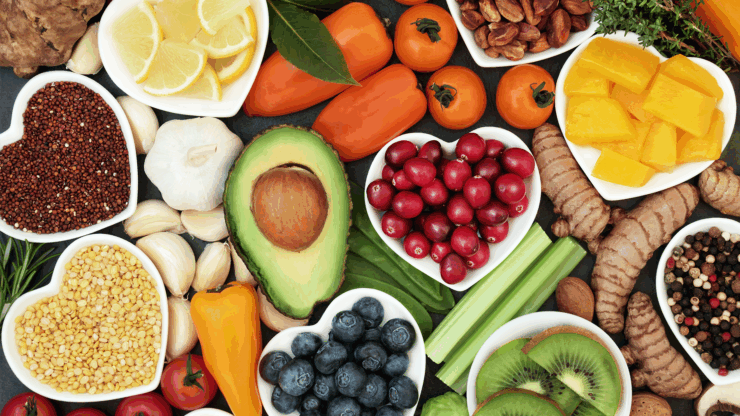
National Nutrition Month: Healthy Eating Guide for Seniors
March is National Nutrition Month and it’s a good time for everyone to evaluate their lifestyle and diet. By eating a balanced diet that emphasizes key nutrients, you can improve your odds of aging healthily and living a dynamic, active lifestyle. Healthy eating can help keep your bones and muscles strong as well your mind alert. Between changing nutritional needs and higher rates of cardiovascular disease, a healthy diet is especially important for seniors.Simple adjustments can go a long way toward building a healthier eating pattern. If you’re in your 50s or older, it is especially important that you get enough of several key nutrients daily. Whether you’re cooking for, planning meals for, or guiding an elderly loved one towards healthier choices, these tips will help you get the most out of foods and beverages while meeting your nutrition needs and reducing the risk of disease:
- Healthy eating is about more than food
Eating well as you age is about more than just the quality and variety of your food—it’s also about the pleasure of eating which increases when a meal is shared. A social atmosphere stimulates your mind and makes a meal more enjoyable and may help you stick to your healthy eating plan. - Be smart about carbs
Choose whole grains over processed white flour for more nutrients and fiber and cut down on sugar and refined carbs. Unlike complex carbs that are rich in fiber, refined or simple carbs (such as white rice, white flour, refined sugar) can lead to a dramatic spike in blood sugar—often followed by a rapid crash that leaves you feeling hungry and more prone to overeating. - Choose nutrient-rich foods without empty calories
Consider choosing fruits and vegetables (choose different types with bright colors), whole grains (i.e. – oatmeal, whole-wheat bread, and brown rice), fat-free or low-fat milk and cheese, or soy or rice milk that has added vitamin D and calcium, seafood, lean meats, poultry, eggs, beans, nuts, and seeds. - Stay hydrated
Staying properly hydrated becomes more challenging as we age. In addition to drinking water, choose unsweetened beverages such as 100% juice, low-fat or fat-free milk, or fortified non-dairy milk alternatives. The water found naturally in fruits, vegetables, and soups can also help you stay hydrated. - Eat more fiber
Dietary fiber can be very beneficial to lowering your risk for heart disease, stroke, and diabetes. Fiber has also been shown to improve the health of your skin and help you to lose weight. As you age, your digestion becomes less efficient, so it’s important to include enough fiber in your diet. - Choose calcium for bone health
Maintaining bone health as you age depends on adequate calcium intake to prevent osteoporosis and bone fractures. Good sources include milk, yogurt, cheese, or non-dairy sources such as tofu, broccoli, almonds, and kale.
Small changes to promote good health and slow down age-related changes to your body can help you maintain a healthy weight, stay energized, and get the nutrients your body needs. It’s essential to everyone’s well-being that they have someone to share meals or take steps towards healthy eating with, whether it’s a family member or one of our professional caregivers.
Find your peace-of-mind.
Explore LifeWorx’ in-home elder care services.

















